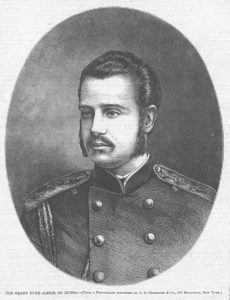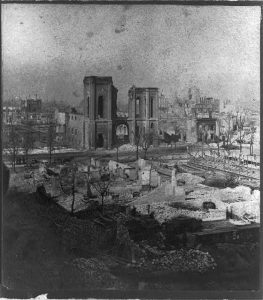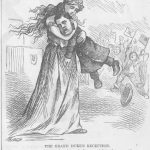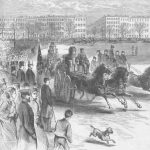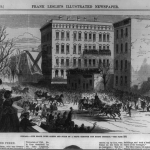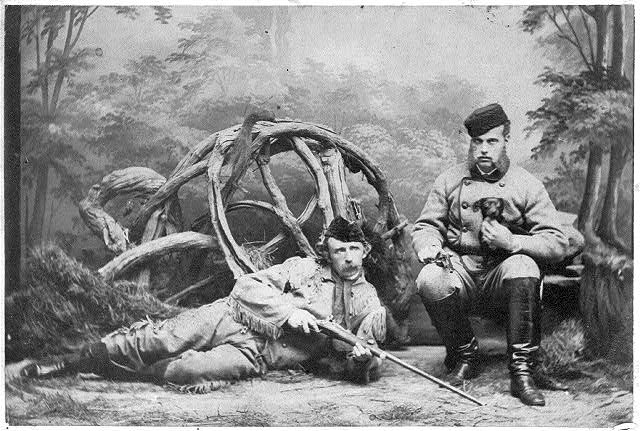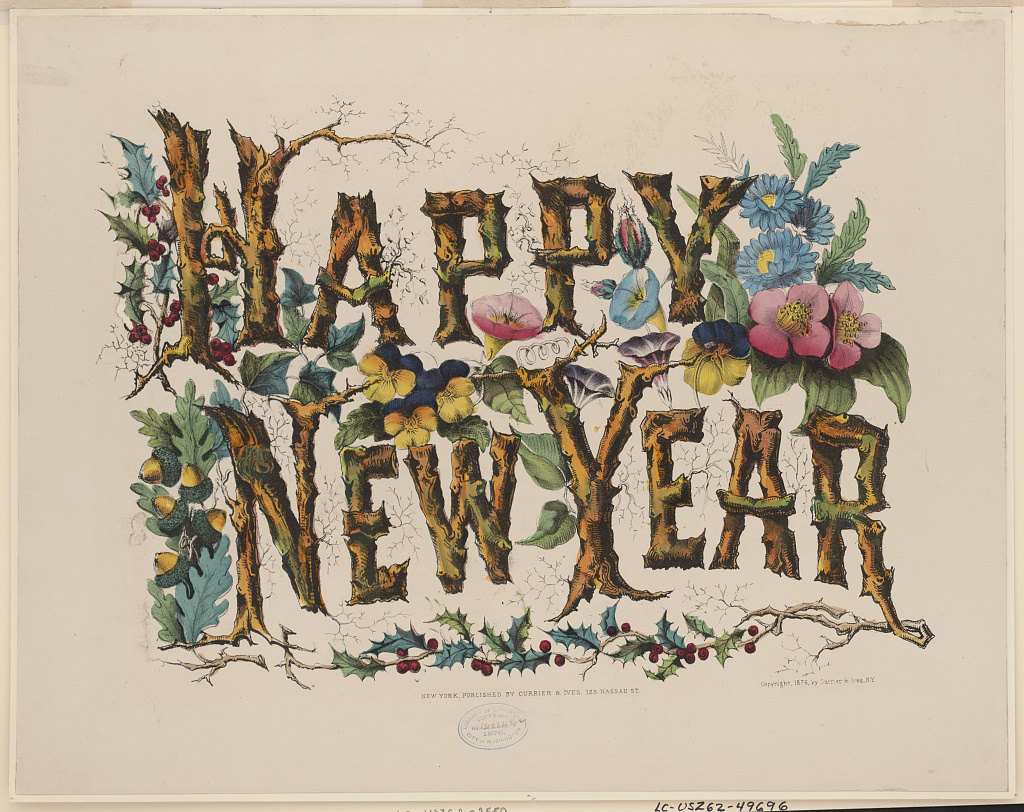150 years ago today a Chicago editorial looked at the year just past and saw the terrible destruction of the Great Chicago Fire in October 1871 as a source of hope for the coming year – citizens had a great opportunity to apply their energy and industriousness to the work of rebuilding the city. The piece next offered a series of New Year’s resolutions for various city stakeholders, and then the Tribune resolved to continue it’s own work as an advocate for non-partisan “Truth, Justice, and Right.”
From the January 1, 1872 issue of The Chicago Tribune:
THE NEW YEAR.
The New Year has come with Alexis, bringing with it sundry provocations to make allusions to scythes, hour-glasses, biers, garlands, cherubs, and other properties which pertain to the last act of 1871 and the first act of 1872. The curtain goes down upon a reality of ruins, and rises again upon the future no man can draw, except with the inspiration of hope. We transfer from the books of 1871 to the new set, a clear balance of acres of broken brick, stone, and iron, and a dozen broken Aldermen, with a determination to remove the one entry and correct the other, as a basis for this year’s work. At the commencement of no previous year has Chicago had such a magnificent field for labor. There is work enough for every man, woman, and child, and plenty of money to pay for it; and, as work brings contentment and peace with it, our chances for a Happy New Year ought to he of the brightest description.
The Old Year left us a margin of time sufficient to clear away the wreck and now we have some three hundred and sixty-six days for good honest endeavor. The fire which burns over the prairie in the fall makes the young grass of the next spring always greener and stronger, and the soil richer and more productive. The same result will ensue in our own case, if we hasten to seize upon the advantages offered us. It would be quite superfluous for us to suggest what course should he adopted or what dangers avoided in shaping and making the New Chicago. Every jagged wall and heap of bricks is eloquent enough with these suggestions, and it is to be presumed that every owner of a pile of this sort has wisdom enough to heed these suggestions and act thereon.
As all of us become violently virtuous on New Years Day and make sundry resolutions, it is probable that we shall do the same to-day. It will be in order, therefore, for city officials to resolve to be honest and spurn bribes and other moneyed considerations to do wrong; for property-owners to resolve to build no more shams, and for builders to observe honesty as a material part of their contracts; for the horse railroad companies to be compassionate toward their brute servants and not tax them beyond their strength; for the West Side Gas Company to furnish a better article for illumination; for grocers to put less sand in their sugar, and for all dealers to give better measure and weight; for young men to drink less whiskey, and for young women to wear less finery; for the unmarried to get married. and for the married to stay married; for the clergy to write better sermons, and for the laity to pay better attention to them; for the lawyers to be more scrupulous, and for the doctors no longer to consort with death; for the rich to be more charitable to the poor, and for the poor to be more tolerant of the rich; for insurance men to be repentant, for insurers to reduce per cents, and for Board of Trade men not to doctor grain; and for every man to forgive his enemy and not let the sun go down upon his wrath, this evening.
It were useless to speak of the New Year elsewhere, for we shall have all that we want to do here with it; and, in the great work of municipal reorganization to be done, the newspaper must of necessity take a prominent place. While wishing all its readers a Happy New Year, and thanking all its patrons for favors in the Old, THE TRIBUNE will henceforth, as always, labor for the best interests of the new city; will still continue to be the people’s Tribune, advocating the right without regard to men; and, in the administration of City, State, and National affairs, demand only the Truth, Justice, and Right, for these are higher than Party, Creed, and Sect.

